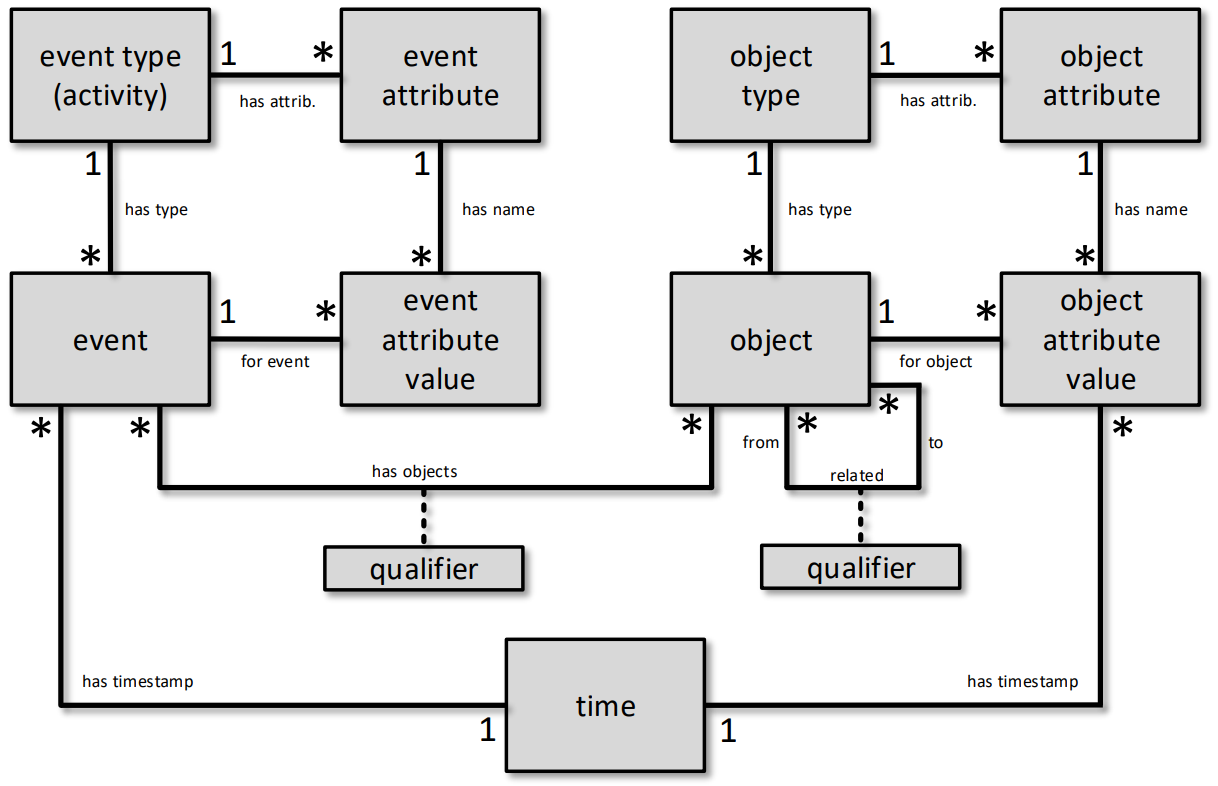Object-Centric Event Log 2.0
OCEL 2.0 is a format for object-centric event logs.
Get StartedOCEL 2.0 is a format for object-centric event logs.
Get StartedObject-centric event logs (OCELs) form the basis for object-centric process mining (OCPM). OCEL 2.0 forms the new, more expressive standard allowing for more extensive process analyses while remaining in an easily exchangeable format. In contrast to the first standard, it can depict changes in objects and provide more information on object relationships. Get a first idea of the main elements of OCEL 2.0.

An event describes a specific execution of an activity and is the basic unit of an event log. It is associates with a timestamp, the objects it was performed on/with and values for activity attributes.
Every object is a uniquely identifiable instance of an object type, for example "order-123". Its has values for the attribute defined for the object type which can differ for different points in time.
Every event is associated with at least one object through an event-to-object relationship. But two objects can be related without sharing an event through an object-to-object relationship.
Activities are the type of event that was executed, such as "register customer order". Every activity can refer to a set of attributes, such as the location at which it is executed.
Every object belongs to a specific object type. Object types refer to a set of attributes that can be different for different objects or even at different points in time for the same object.
Both types of relationships can now be qualified. For example, the role a particular object plays in an event, e.g. the actor, can now be distinguished in the event log.